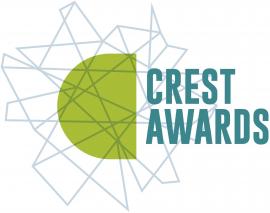- View more resources from this publisher
 CREST Awards
CREST Awards
CREST Awards: Bronze
CREST Bronze Awards engage and inspire a wide range of students, and introduce them to the language and methods of project work. The flexible framework can be adapted for students of different ages and abilities.
Bronze projects:
• Involve a minimum of 10 hours of work on one project area
• Use scientific and/or technical knowledge appropriate to students aged 11 to 14
• Students share their project outcomes with their peers (e.g. display, assembly, poster)
• Have active support from an educator: guiding students but allowing them to make decisions for themselves, reviewing progress regularly and supporting planning to maintain the pace of progress
Download the Teacher’s guide here: http://www.crestawards.org/site-content/uploads/2016/10/CREST_Bronze_teacher_guide.pdf
You will need to register your students through the Crest Award website: http://www.crestawards.org/
Resources
Filter
Bronze award: Bath bomb challenge
An investigation to find out how to make the most fizzy bath bomb using citric acid and baking soda.
Bronze award: Introduce a ‘waste-free’ lunch programme
The idea of this project is for students to introduce a school lunch programme to their school or college and encourage pupils to use recycled or re-usable packaging for their lunches. Students produce a leaflet or poster presentation explaining why it’s important to cut down on waste and suggest types of reusable...
Bronze award: quality control
Students imagine they work in the quality control department of a company that manufactures pre-packaged consumer products. Their job is to sample packages to check that they contain the right mass or volume of product. If not, the filling machines need adjusting. They will need to c...
Bronze award: How do nutrients affect plant growth?
Despite the high rate of growth in rainforests the soil is poor in nutrients. The nutrients have been washed out of the soils by heavy rainfall. In this project, students are going to investigate how the nutrients in compost affect the rate of growth of seedlings.





